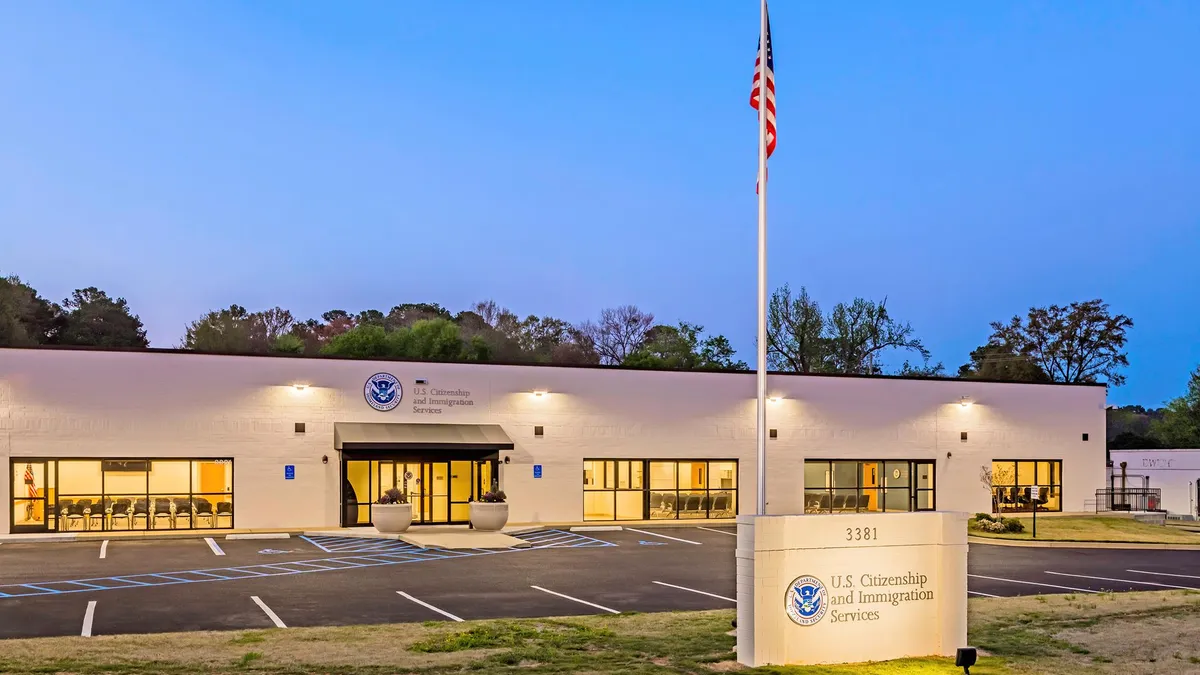Dive Brief:
- U.S. Customs and Immigration Services (USCIS) will temporarily delay fast-tracked processing of H-1B visas, the San Francisco Chronicle reports. The premium processing delay will affect for-profit companies competing for an 85,000 annual visa allotment, but it's unclear when it will happen or how long the delay will last.
- The delay will likely occur after an upcoming April lottery, says the Chronicle. Those who are selected could be eligible for work in 2019, but they still must undergo additional evaluation for work clearance in the U.S. The Chronicle says that this is where employers might feel the pain, unable to pay a $1,225 fee for a quick 15-day processing and potentially having to put projects on hold until they know they are staffed.
- Although no legislative changes to the H-1B visa program have occurred, there could be increased scrutiny of applications, says the Chronicle. Visa approvals dropped significantly last year after more intensive reviews by the agency.
Dive Insight:
Without knowing when the fast-track processing delay will begin or how long it will last, employers won't be able to do much planning.
Employers might also be concerned about the fast-track processing delay possibly turning into a suspension, which was the case last year. Similarly, the H-2B visa has also been swamped with applicants — so much so that USCIS had to change its processing system to accommodate them, as well.
Last month, restrictions on contractors were also made. Foreign contractors seeking H-1B visas are now tasked with proving their candidacy for a "specialty occupation." Additionally, employers have to provide their own documentation, including contracts and itineraries of their employees.
Prior to restrictions on contractors, the Trump administration announced possible restrictions on the H-4 visa, one reserved for spouses of H-1B visa holders. Still, USCIS is still overwhelmed with visa applications, given the demand for skilled, largely high-tech workers.
As the Chronicle noted, no significant legislative changes have been made to the program but with a political atmosphere that seems uncertain and the Trump administration's tough stance on immigration, scrutiny of the H-1B visa program will likely continue. Employers may need to make contingency plans to handle any unexpected changes to the program while also facing labor shortages.












